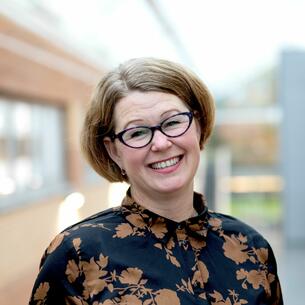Responsibilities
My responsibilities at Master's in Midwifery, USN:
-
Course responsibility for "Normality in Pregnancy, Birth, and Family Formation".
-
Course responsibility for "Complicated Pregnancy, Birth, and Family Formation".
-
Responsible for conducting simulation training for midwifery students in acute obstetric emergencies at USN (University of South-Eastern Norway).
-
Internationalization for midwifery students (Pune, India).
Competences
I have written a doctoral dissertation on midwives' experiences with newborn resuscitation and how to teach these skills to midwifery students. The defense was on December 19, 2023.
Link to my dissertation here: https://openarchive.usn.no/usn-xmlui/bitstream/handle/11250/3105906/2023_176_Ljungblad_dissertation.pdf?sequence=1&isAllowed=y
I am involved in simulation training as a learning method for midwifery students to acquire skills in a safe learning environment where emotional reactions are acknowledged. Becoming a good midwife is a lifelong learning process where one never stops learning and developing. Acute situations must be handled with a reflex that operates on autopilot, especially when unexpected situations arise. These skills must be trained frequently and regularly because they are perishable and require continuous updating.
Linked-In: https://www.linkedin.com/public-profile/settings?lipi=urn%3Ali%3Apage%3Ad_flagship3_profile_self_edit_contact-info%3B8A5Ul831SHmYgW3bjsyHLA%3D%3D
CV
Cristin: https://app.cristin.no/persons/show.jsf?id=923368
Linked-In: https://www.linkedin.com/public-profile/settings?lipi=urn%3Ali%3Apage%3Ad_flagship3_profile_self_edit_contact-info%3B8A5Ul831SHmYgW3bjsyHLA%3D%3D
